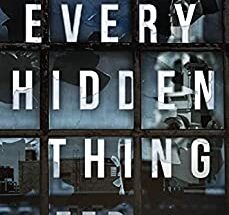Dear Teacher,
By this point, you’ve survived the flu, the stomach bug, and emotional outbursts from that one student in your classroom who never, ever misbehaves at home. “No problem,” you tell your principal as you wonder if the bottle of Tums in your desk is already empty. Teaching is not easy. And, you’ve got three more months of it until you cross the finish line.
I offer up one, small strategy to get you to the end of the academic year with some pep still left in your step.
Write for fifteen continuous minutes every day.
From now until the end of the school year, use your lunch break (or weekly staff meeting) to write down snippets of things you hear and see around you. All week long, you encourage and support others to develop and express their ideas. Do this to keep your creativity flowing. And, to keep yourself sane. Fifteen minutes. That’s it.
Impossible, you might say. I use my lunch time to plan lessons, plan with co-workers, have special lunches with students who eat crayons, talk with our social worker about what to do with the students eating writing implements. I don’t have a single, solitary minute to go to the bathroom.
Every reason listed above is valid. And yet.
Teaching is caretaking and all of that energy you give to others each and every day brings you too close to the edge of burnout, especially if you are responsible for others in your personal life, as well. Use this tool to replenish so your load may be a little lighter and the joy that already exists for you expands.
Consider some of the following to help you think of details to jot down:
- Setting. Schools are perfect containers for tension to grow and build and even explode. Think of those noisy hallways. Think of the main office. Principal’s office. Your own classroom. Best of all, that teacher’s room. I know what goes down in there and you do, too. Jot down one of those interactions and see what happens when you get it down on paper.
- Characters. You can’t rip off a real live person and write them word for word in your story. Even if you could, it wouldn’t be that much fun because, I imagine, you want a break from the people you see all day, every day. Students display endless examples of character traits ripe for development into unique characters for stories. Don’t forget that overly toxic coworker who hasn’t admitted to herself she needs intense medical intervention in order to survive her most recent life passage. The next time she rages at you for not sharpening all of the classroom pencils correctly, instead of responding back in kind, get smug on the inside and know she’s giving you a fantastic gift–the beginning of a great scene. Witnessing someone else’s crazy, unprofessional behavior hurts for a moment until you remember it’s not about you. Write it down.
- Dialogue. Start a notebook to write down the one-liners students are famous for. Your colleagues bust out with them, too. Dialogue should only be written and used in service of moving a story forward, but sometimes a great line sparks a great idea for a new scene which can then be the beginning of a great conversation on the page. Start that list and keep it, always. If anything, it will keep you laughing for years to come.
15 x 5= 75 minutes. That is 75 minutes a week reserved only for you, the beginning of the best story of all.




1 comment